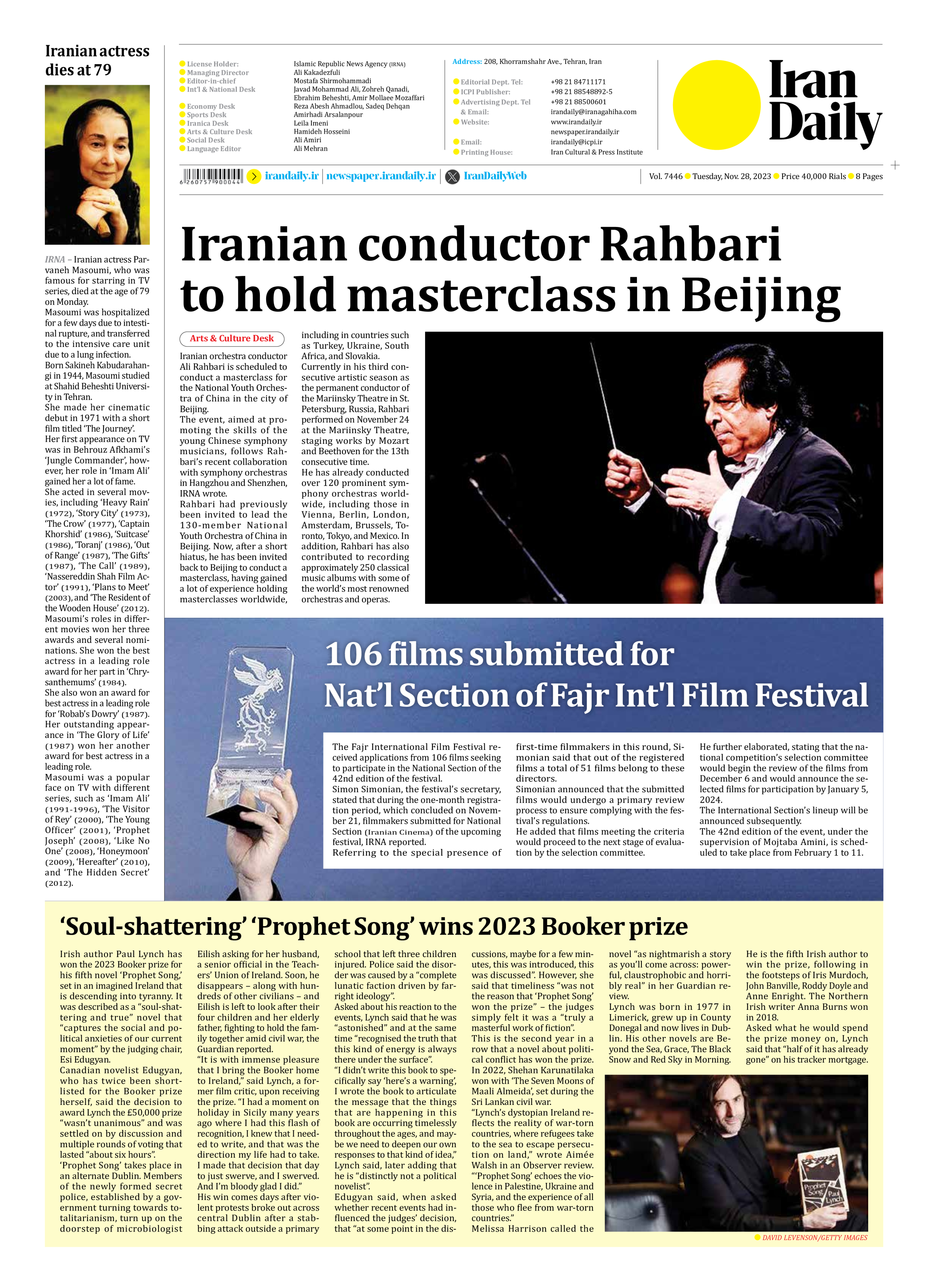
‘Soul-shattering’ ‘Prophet Song’ wins 2023 Booker prize
Irish author Paul Lynch has won the 2023 Booker prize for his fifth novel ‘Prophet Song,’ set in an imagined Ireland that is descending into tyranny. It was described as a “soul-shattering and true” novel that “captures the social and political anxieties of our current moment” by the judging chair, Esi Edugyan.
Canadian novelist Edugyan, who has twice been shortlisted for the Booker prize herself, said the decision to award Lynch the £50,000 prize “wasn’t unanimous” and was settled on by discussion and multiple rounds of voting that lasted “about six hours”.
‘Prophet Song’ takes place in an alternate Dublin. Members of the newly formed secret police, established by a government turning towards totalitarianism, turn up on the doorstep of microbiologist Eilish asking for her husband, a senior official in the Teachers’ Union of Ireland. Soon, he disappears – along with hundreds of other civilians – and Eilish is left to look after their four children and her elderly father, fighting to hold the family together amid civil war, the Guardian reported.
“It is with immense pleasure that I bring the Booker home to Ireland,” said Lynch, a former film critic, upon receiving the prize. “I had a moment on holiday in Sicily many years ago where I had this flash of recognition, I knew that I needed to write, and that was the direction my life had to take. I made that decision that day to just swerve, and I swerved. And I’m bloody glad I did.”
His win comes days after violent protests broke out across central Dublin after a stabbing attack outside a primary school that left three children injured. Police said the disorder was caused by a “complete lunatic faction driven by far-right ideology”.
Asked about his reaction to the events, Lynch said that he was “astonished” and at the same time “recognised the truth that this kind of energy is always there under the surface”.
“I didn’t write this book to specifically say ‘here’s a warning’, I wrote the book to articulate the message that the things that are happening in this book are occurring timelessly throughout the ages, and maybe we need to deepen our own responses to that kind of idea,” Lynch said, later adding that he is “distinctly not a political novelist”.
Edugyan said, when asked whether recent events had influenced the judges’ decision, that “at some point in the discussions, maybe for a few minutes, this was introduced, this was discussed”. However, she said that timeliness “was not the reason that ‘Prophet Song’ won the prize” – the judges simply felt it was a “truly a masterful work of fiction”.
This is the second year in a row that a novel about political conflict has won the prize. In 2022, Shehan Karunatilaka won with ‘The Seven Moons of Maali Almeida’, set during the Sri Lankan civil war.
“Lynch’s dystopian Ireland reflects the reality of war-torn countries, where refugees take to the sea to escape persecution on land,” wrote Aimée Walsh in an Observer review. “‘Prophet Song’ echoes the violence in Palestine, Ukraine and Syria, and the experience of all those who flee from war-torn countries.”
Melissa Harrison called the novel “as nightmarish a story as you’ll come across: powerful, claustrophobic and horribly real” in her Guardian review.
Lynch was born in 1977 in Limerick, grew up in County Donegal and now lives in Dublin. His other novels are Beyond the Sea, Grace, The Black Snow and Red Sky in Morning. He is the fifth Irish author to win the prize, following in the footsteps of Iris Murdoch, John Banville, Roddy Doyle and Anne Enright. The Northern Irish writer Anna Burns won in 2018.
Asked what he would spend the prize money on, Lynch said that “half of it has already gone” on his tracker mortgage.







